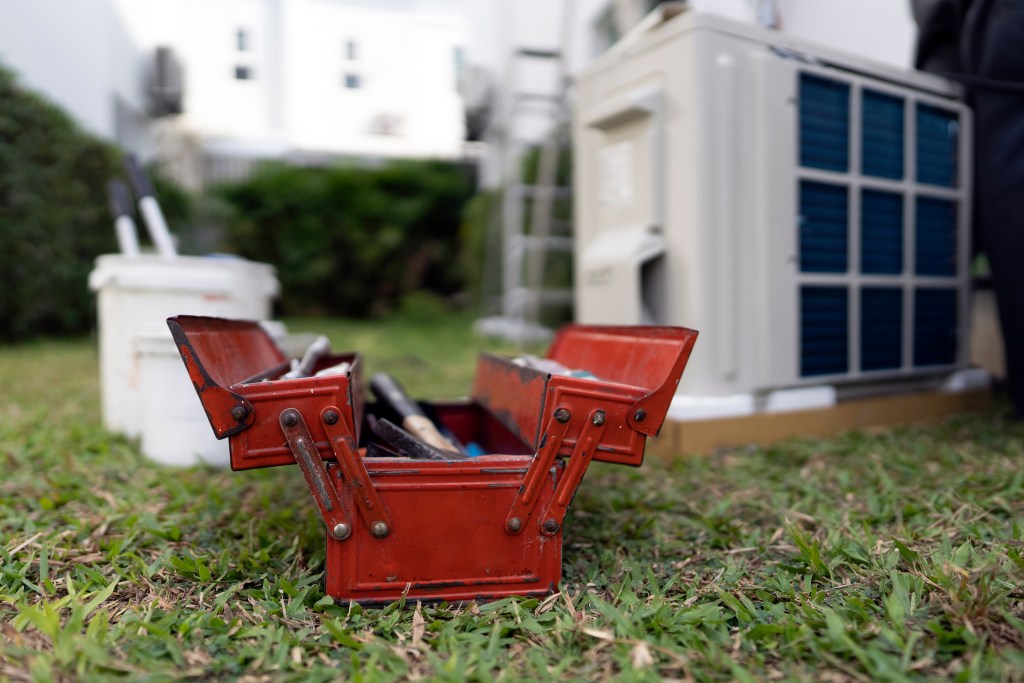Consider age, repair cost, pricing, energy efficiency, and whether to modify your kitchen to accommodate a new unit.

- When an appliance is old and isn’t working efficiently, it may seem natural to decide to replace it rather than repair it — may it rest in peace.
But appliances often break before their time, making the repair-or-replace decision harder. Also, the replacement cost may give you second thoughts.
If money is tight, you may have to repair the appliance and hope for the best. But if you’ve got some coin, replacing with a new, energy-efficient model may be the better way to go.
Those are a lot of ifs, and the repair-or-replace dilemma is often hard to resolve. Here are some guidelines to help you decide.
Is It Really Broken?
When appliances stop working, we get so rattled that the obvious escapes us. Before you panic, make sure:
- The appliance is plugged in.
- Circuit breakers haven’t tripped. (I once replaced a blender only to discover that the circuit needed resetting.)
- Flooring hasn’t become uneven, which can stop some appliances from turning on.
- Vents and filters aren’t clogged with lint and dust.
Related: How to Help Your Appliances Last Longer
Is It Still Under Warranty?
Check your owner’s manual or records to see if the sick appliance is still under warranty. Most appliances come with a manufacturer warranty that will cover the cost of repairs anywhere from one to three years after the initial date of purchase. If it’s still covered, schedule a service call.
Related: Is an Extended Warranty Right for You?
Is It Truly at the End of Its Useful Life?
Appliances have an average useful life — the typical lifespan after which the machine is running on borrowed time. The closer your appliance is to its hypothetical past-due date, the wiser it is to replace rather than repair.
Here are the typical lifespans of major appliances.
| Appliance | Average Lifespan (Years) |
| Compactor | 6 |
| Dishwasher | 9 |
| Disposal | 12 |
| Dryer | 13 |
| Exhaust Fan | 10 |
| Freezer | 10-20 |
| Microwave | 9 |
| Range, electric | 13-15 |
| Range, gas | 15-17 |
| Range/oven hood | 14 |
| Refrigerator | 9-13 |
| Washer | 5-15 |
How to Follow the 50% Rule
In 2021, the cost to repair an appliance ranged from $100 to $300. Should you pay it?
If an appliance is more than 50% through its lifespan and if the cost of one repair is more than 50% of the cost of buying new, you should replace rather than repair.
To do the math, you’ll have to know the typical lifespan (see above) and get a repair estimate. Most service companies charge a “trip charge” to diagnose the problem. These charges vary widely, so be sure to ask when you arrange the appointment. If the company repairs the appliance, it usually waives the trip charge.
DIY Whenever Possible
If you know your way around a socket wrench, you may be able to make simple appliance repairs yourself and save labor fees. YouTube has lots of DIY repair videos, and user manuals can help you troubleshoot.
Can’t find your manual? Search online for “manual” along with your appliance brand and model number. Most manufacturers provide free downloadable PDFs of appliance manuals, and several websites specialize in nothing but manuals.
However, there is a downside to repairing appliances yourself.
- Many electrical replacement parts are nonrefundable, so if you misdiagnose the problem, you’ve wasted money.
- Large appliances are heavy and bulky. You risk injury if you don’t know how to move, open, and lift the machine properly.
- Some appliance warranties are voided when you mess with the machine yourself.
- If you forget to unplug the machine before making repairs, you can electrocute yourself (making savings a moot point).
How to Calculate Whether Energy Efficiency Is Cost Effective
New water-saving and energy-efficient appliances can be cost effective: An old refrigerator uses about 33% more energy than a new model with ENERGY STAR certification, according to Energy Star.
But replacing energy clunkers that still have miles left on them may not be a money-wise move. You might spend thousands on an appliance in order to save hundreds (if you’re lucky) on your energy bill.
The Association of Home Appliance Manufacturers says if you’re planning to stay in your home for 10 to 15 years, upgrading appliances is a good idea. However, if you’re planning on moving soon, you’ll save money by keeping your older appliances and letting the new owners upgrade to energy-efficient models.
What Are the Hidden Costs When Replacing Old Appliances?
The cost of replacing an appliance may include more than just the price of the machine. In fact, the price tag could be the least of the money you’ll spend to upgrade an appliance.
- A new refrigerator may not fit in the old spot. You could have to modify cabinetry to fit the new appliance. Be sure to measure accurately.
- Gas ovens and ranges will save money only if your home already has gas connections. If not, you could spend thousands bringing a gas line into your home or hundreds rerouting the lines you already have.
- Upgrading from a simple gas range to one with all the bells and whistles may require upgrading or adding electrical wiring and circuits.
- “Visit HouseLogic.com for more articles like this. Reprinted from HouseLogic.com with permission of the NATIONAL ASSOCIATION OF REALTORS®.”
